Course #:
S03
Course Length:
5 Days (40 Hours)
Course Price:
$2,950
Course Dates:
Contact Us for Details
Course Description
Welcome to Certified Information Systems Security Professional (CISSP)®: Second Edition. With your completion of the prerequisites and necessary years of experience, you are firmly grounded in the knowledge requirements of today’s security professional. This course will expand upon your knowledge by addressing the essential elements of the 10 domains that comprise a Common Body of Knowledge (CBK)® for information systems security professionals. The course offers a job-related approach to the security process, while providing the basic skills required to prepare for CISSP certification.
Objectives: You will analyze a wide range of information systems security subjects that are organized into 10 domains for CISSP exam certification.
This course is intended for experienced IT security-related practitioners, auditors, consultants, investigators, or instructors, including network or security analysts and engineers, network administrators, information security specialists, and risk management professionals, who are pursuing CISSP training and certification to acquire the credibility and mobility to advance within their current computer security careers or to migrate to a related career. Through the study of all 10 CISSP CBK domains, students will validate their knowledge by meeting the necessary preparation requirements to qualify to sit for the CISSP certification exam. Additional CISSP certification requirements include a minimum of five years of direct professional work experience in one or more fields related to the 10 CBK security domains, or a college degree and four years of experience.
Prerequisites
It is highly recommended that students have certifications in Network+ or Security+, or possess equivalent professional experience upon entering CISSP training. It will be beneficial if students have one or more of the following security-related or technology-related certifications or equivalent industry experience: MCSE, MCTS, MCITP, SCNP, CCNP, RHCE, LCE, CNE, SSCP ®, GIAC, CISA™, or CISM®.
Course Objectives
Upon successful completion of this course, students will be able to:
- Analyze information systems access control.
- Analyze security architecture and design.
- Analyze network security systems and telecommunications.
- Analyze information security management goals.
- Analyze information security classification and program development.
- Analyze risk management criteria and ethical codes of conduct.
- Analyze application security.
- Analyze cryptography characteristics and elements.
- Analyze physical security.
- Analyze operations security.
- Apply business continuity and disaster recovery plans.
- Identify legal issues, regulations, compliance standards, and investigation practices relating to information systems security.
Course Contents
Lesson 1: Information Systems Access Control
Topic 1A: Data Access Principles
Topic 1B: System Access and Authentication
Topic 1C: Penetration Tests
Lesson 2: Security Architecture and Design
Topic 2A: Security Models
Topic 2B: Security Modes
Topic 2C: System Assurance
Lesson 3: Network and Telecommunications Security
Topic 3A: Data Network Design
Topic 3B: Remote Data Access
Topic 3C: Data Network Security
Topic 3D: Data Network Management
Lesson 4: Information Security Management Goals
Topic 4A: Organizational Security
Topic 4B: The Application of Security Concepts
Lesson 5: Information Security Classification and Program Development
Topic 5A: Information Classification
Topic 5B: Security Program Development
Lesson 6: Risk Management and Ethics
Topic 6A: Risk Management
Topic 6B: Ethics
Lesson 7: Application Security
Topic 7A: Software Configuration Management
Topic 7B: Software Controls
Topic 7C: Database System Security
Lesson 8: Cryptography
Topic 8A: Ciphers and Cryptography
Topic 8B: Symmetric-Key Cryptography
Topic 8C: Asymmetric-Key Cryptography
Topic 8D: Hashing and Message Digests
Topic 8E: Email, Internet, and Wireless Security
Topic 8F: Cryptographic Weaknesses
Lesson 9: Physical Security
Topic 9A: Physical Access Control
Topic 9B: Physical Access Monitoring
Topic 9C: Physical Security Methods
Topic 9D: Facilities Security
Lesson 10: Operations Security
Topic 10A: Operations Security Control
Topic 10B: Operations Security Auditing and Monitoring
Topic 10C: Operational Threats and Violations
Lesson 11: Business Continuity and Disaster Recovery Planning
Topic 11A: Business Continuity Plan Fundamentals
Topic 11B: Business Continuity Plan Implementation
Topic 11C: Disaster Recovery Plan Fundamentals
Topic 11D: Disaster Recovery Plan Implementation
Lesson 12: Legal, Regulations, Compliance, and Investigations
Topic 12A: Computer Crime Laws and Regulations
Topic 12B: Computer Crime Incident Response
Appendix A: Mapping CISSP® Course Content to the (ISC)2 CISSP Exam Objectives

